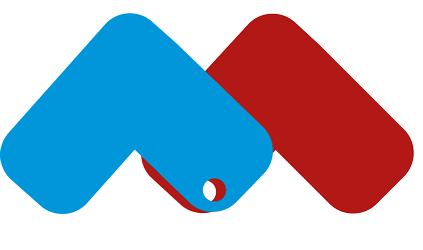Artificial intelligence (AI) integration has moved from a distant possibility to an essential element of modern business operations. While humans have long been at the center of work and decision-making processes, AI is now proving to be a better colleague than many anticipated.
With the ability to process vast amounts of information quickly, maintain focus without fatigue, and offer unbiased, consistent insights, AI is not just assisting humans—it’s redefining what a productive, efficient work environment looks like.
But why exactly is AI a better colleague than you’ll ever get? Let’s break down the factors that give AI the edge and explore why businesses and professionals embrace AI as an essential work partner.
1. Immediate Access to Knowledge
AI’s ability to access and integrate knowledge instantly makes it an unparalleled resource in any work environment. When you ask AI questions, it doesn’t need to search, remember, or relearn concepts. It has a vast database of information, ready to provide accurate and up-to-date insights in real time.
AI Strength:
AI doesn’t need to research or refresh its memory, which means it can instantly access relevant information—whether it’s a complex PMO framework, an advanced financial model, or the latest trends in AI integration. For professionals working in fast-paced industries like project management, AI’s immediate access to knowledge eliminates the bottleneck that comes with human learning curves.
Human Limitation:
Humans, on the other hand, require time to gather information. Experts must refresh their understanding, research new developments, or collaborate with colleagues to solve problems. This delay in processing information can slow down decision-making and impede productivity, especially in industries where speed is essential.
2. Context Retention
One of AI’s greatest strengths is its ability to retain and recall context over time. Whether remembering past conversations, understanding long-term project goals, or keeping track of intricate details across multiple engagements, AI’s memory is seamless.
AI Strength:
Unlike humans, AI doesn’t forget. It can recall context from previous interactions and apply that knowledge in real time, ensuring smoother communication, fewer misunderstandings, and more tailored solutions. This ability to retain context means AI can work with you over time without repeated explanations or reminders.
Human Limitation:
Humans often need to be reminded of past conversations or projects, particularly in high-pressure environments where multitasking is the norm. Memory lapses or misunderstandings can lead to delays or miscommunication, making it harder for humans to maintain consistent output over time.
_____
How to Give Empowering and Inspiring Feedback with the FBI Method
_____
3. Pattern Recognition and Analysis
AI excels at recognizing patterns and analyzing data in ways humans can’t match. Its ability to process large datasets and identify trends or anomalies gives it a critical advantage when solving complex problems or optimizing processes.
AI Strength:
Trained to spot trends and make connections across vast amounts of data, AI can offer insights humans might miss. In fields like PMO management, where data-driven decision-making is important, AI can significantly enhance efficiency by identifying patterns that lead to better project outcomes or more effective resource allocation.
Human Limitation:
While capable of deep analysis, humans typically rely on experience and intuition, which can sometimes be limited or biased. Additionally, humans may need more time to process new or unfamiliar data, leading to slower conclusions and potentially missed opportunities.
4. Unbiased Processing
When processing information, AI offers something humans often can’t—unbiased, emotion-free analysis. AI evaluates data objectively, ensuring that decisions are based purely on facts and not influenced by personal feelings, biases, or external pressures.
AI Strength:
Because AI operates without emotions or preconceptions, it can provide a level of clarity that human colleagues might struggle with. Whether handling conflict resolution, assessing project risks, or making strategic decisions, AI can deliver insights based on data rather than emotions or subjective opinions.
Human Limitation:
Humans naturally bring biases, emotions, and preconceptions into decision-making processes. While emotional intelligence is valuable, it can sometimes cloud judgment or lead to suboptimal decisions, particularly in high-stakes or high-pressure environments.
_____
How to Deal with Uncertainty and Drive Success Based on Mastering Ambiguity
_____
5. No Cognitive Overload or Fatigue
AI doesn’t get tired, and it doesn’t experience cognitive fatigue, distraction, or overwhelm. Whether working at the beginning of the day or late into the night, AI maintains a consistent level of performance that humans simply cannot match.
AI Strength:
The lack of cognitive fatigue allows AI to perform at a high level, regardless of workload consistently. This makes AI an invaluable resource for time-intensive projects, repetitive tasks, or environments where consistent focus is essential.
Human Limitation:
Humans experience cognitive fatigue, especially after long periods of concentration or during times of stress. As cognitive load increases, human performance typically decreases, leading to slower responses, decreased accuracy, and increased likelihood of errors.
6. Tailored Responses
AI’s adaptability makes it an incredibly effective work partner. Based on previous interactions, AI can tailor its responses to better suit your needs, offering recommendations or solutions that align with your specific preferences or organizational goals.
AI Strength:
AI is designed to adapt based on the information it has learned from previous engagements. Whether you need a quick, data-driven answer or a detailed explanation of a complex process, AI can provide the type of response that best suits your needs, streamlining communication and improving productivity.
Human Limitation:
Building that level of understanding with human colleagues can take time, and misunderstandings are bound to occur. Humans may need more clarification, and individual communication styles can sometimes create friction, making problem-solving less efficient.
_____
8 Complexity Management Strategies that will Help you Cope
_____
The Human Advantage
While AI offers significant advantages in terms of efficiency, it’s important to recognize that humans still bring unique strengths to the workplace. These are strengths that AI cannot currently replicate:
- Creativity and Innovation: AI excels at processing information and recognizing patterns, but it cannot think creatively or generate groundbreaking, out-of-the-box ideas. Humans, on the other hand, can combine knowledge with imagination to create truly innovative solutions.
- Emotional Intelligence and Empathy: Humans are far better at understanding the emotional dynamics in conversations, which is critical for managing teams, fostering collaboration, and building relationships. AI, while helpful in many areas, can’t match human intuition when it comes to reading and responding to emotional cues.
- Ethical Judgment and Contextual Sensitivity: Many business decisions require ethical considerations that AI might struggle with. Humans excel at understanding cultural, social, or personal contexts, whereas AI may miss the nuances needed for effective ethical decision-making.
AI vs. Human Colleague Comparison Table
| Criteria | World Human Expert | Typical Work Colleague | AI Colleague |
| Immediate Access to Knowledge | ● | ◕ | ◉ |
| Context Retention | ● | ◑ | ◉ |
| Pattern Recognition and Analysis | ● | ◑ | ◉ |
| Unbiased Processing | ◕ | ◑ | ◉ |
| No Cognitive Load or Fatigue | ◕ | ◑ | ◉ |
| Tailored Responses | ● | ◑ | ◉ |
| Creativity and Innovation | ◉ | ◕ | ◑ |
| Emotional Intelligence and Empathy | ◉ | ◕ | ◔ |
| Ethical Judgment and Sensitivity | ◉ | ◕ | ◔ |
Legend:
◉: Excellent
◕: Good
◑: Fair
◔: Poor
Final Thoughts
AI’s ability to understand quickly, process vast amounts of data, and provide instant, clear responses makes it a highly efficient partner in your work, especially in technical, data-driven fields like PMO development and forward-thinking frameworks. While human skills in creativity, empathy, and ethics are irreplaceable, AI offers unparalleled efficiency and accuracy in many work-related tasks.
By balancing AI’s strengths with human creativity and leadership, you can create a workplace that leverages the best of both worlds. Allowing AI to handle data-intensive, repetitive tasks frees up time to focus on what humans do best—envisioning the future, driving innovation, and building meaningful connections.
While AI may never replace the human touch, it’s clear that AI is a better colleague than you’ll ever be in many respects. Embrace it, and watch your productivity soar.








